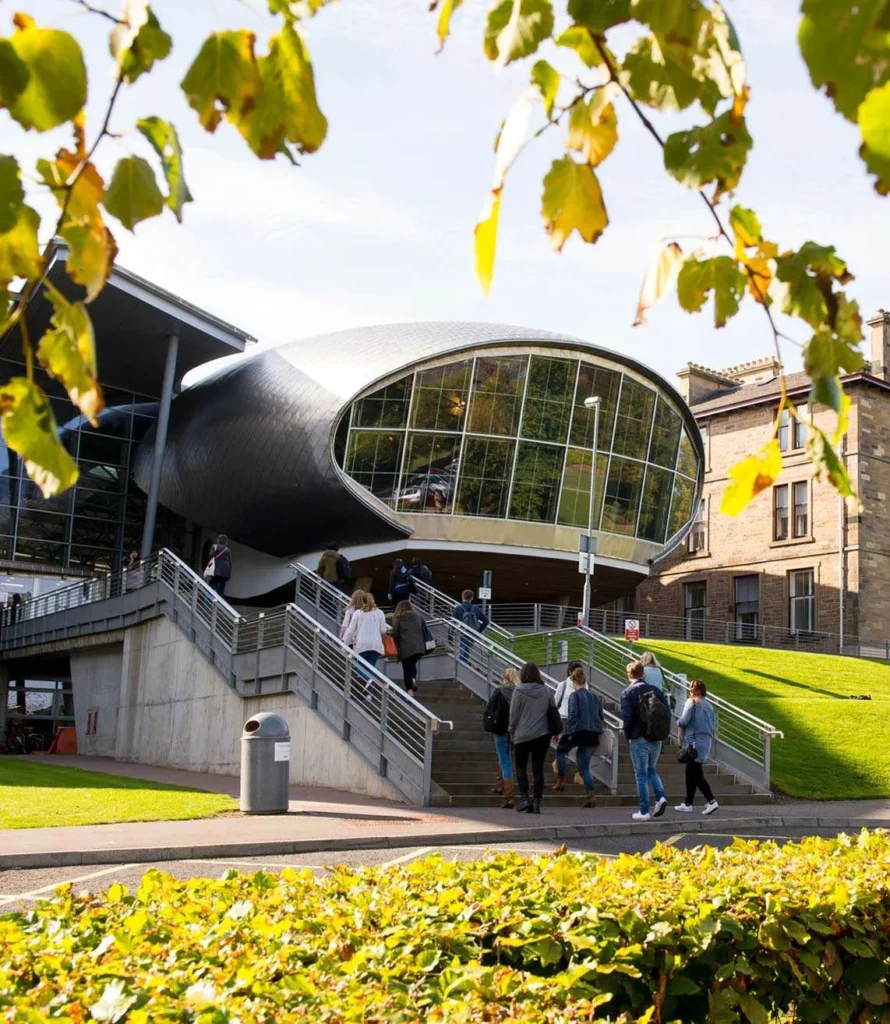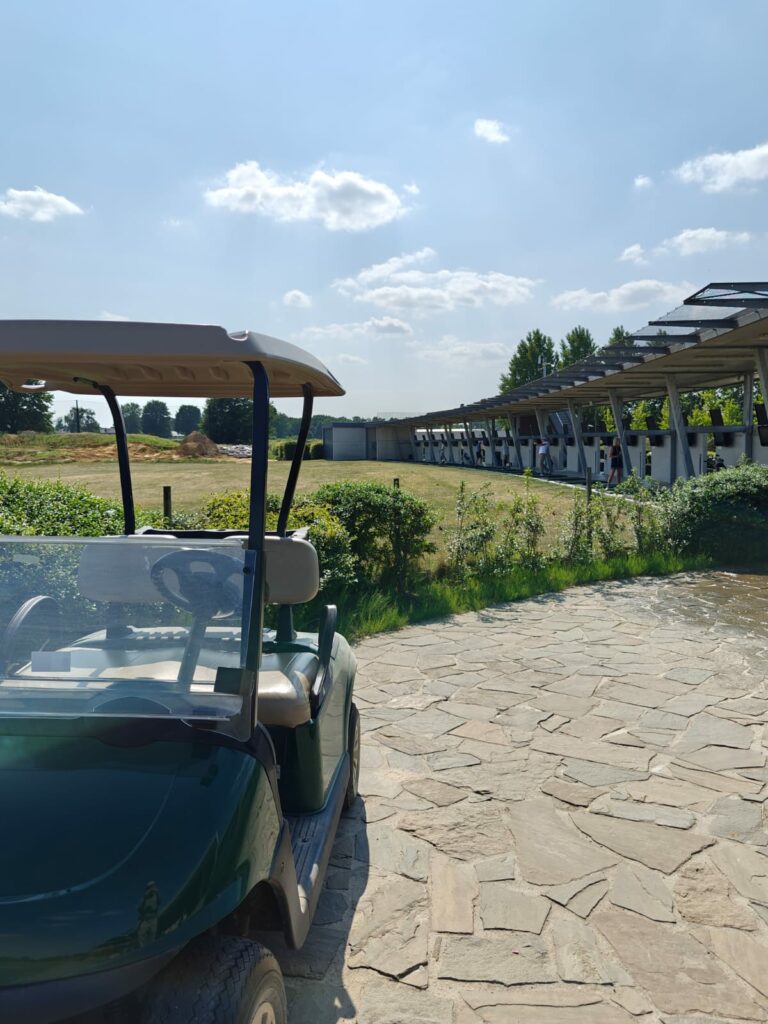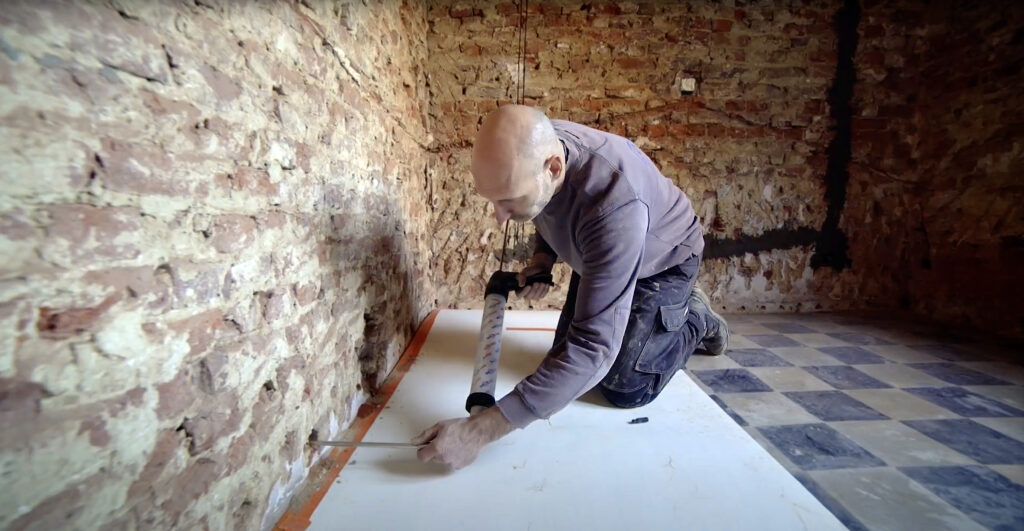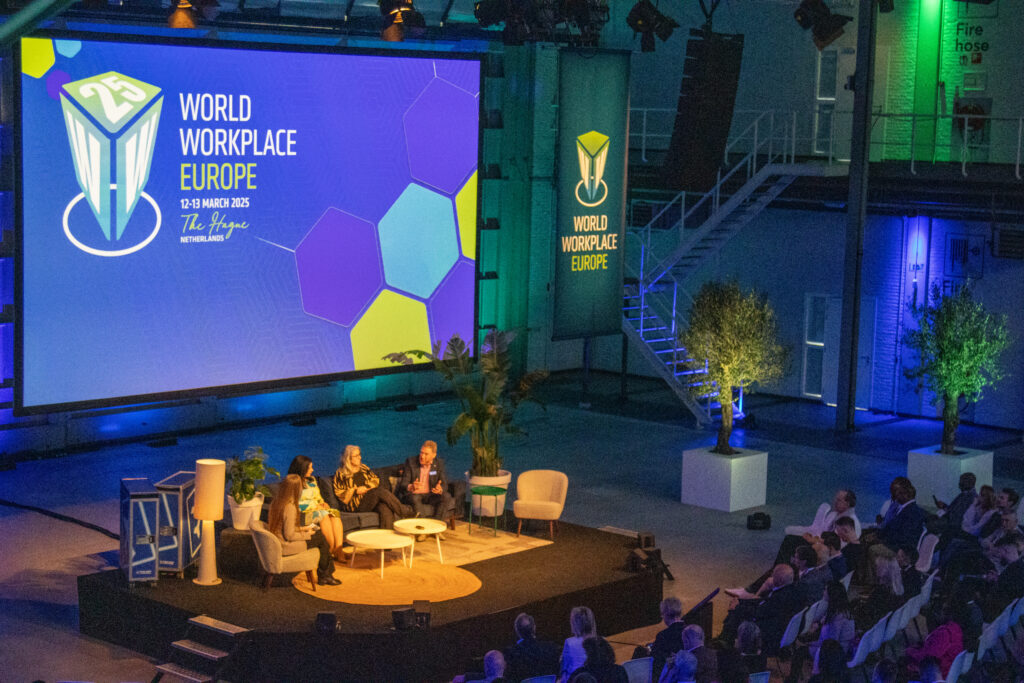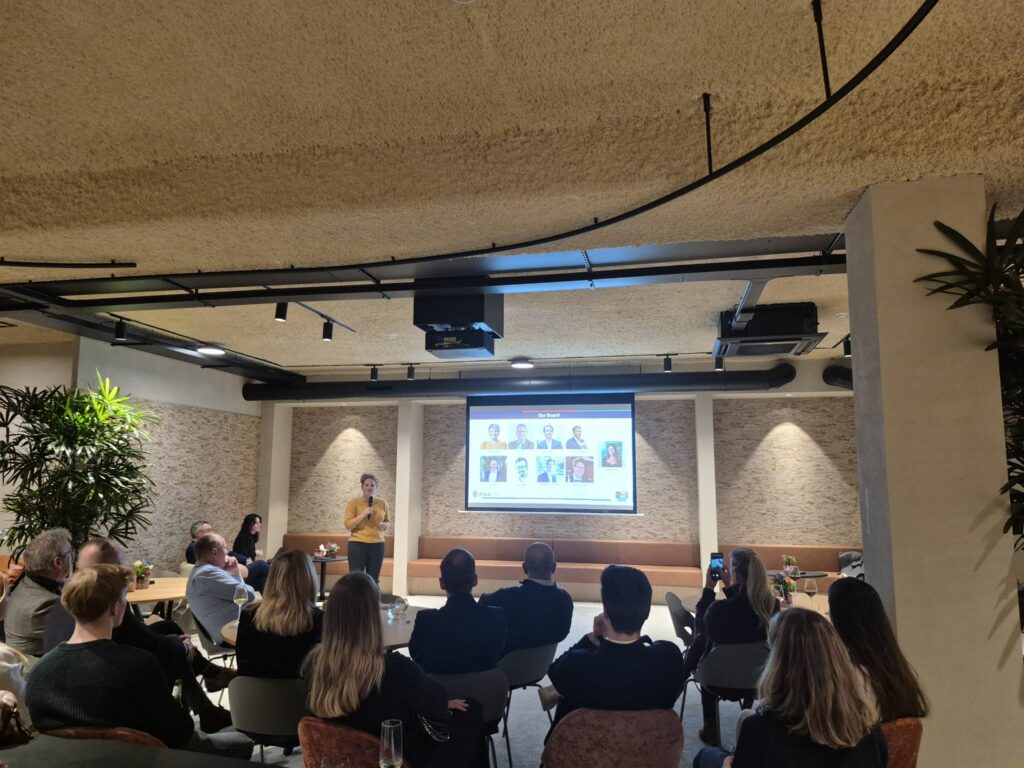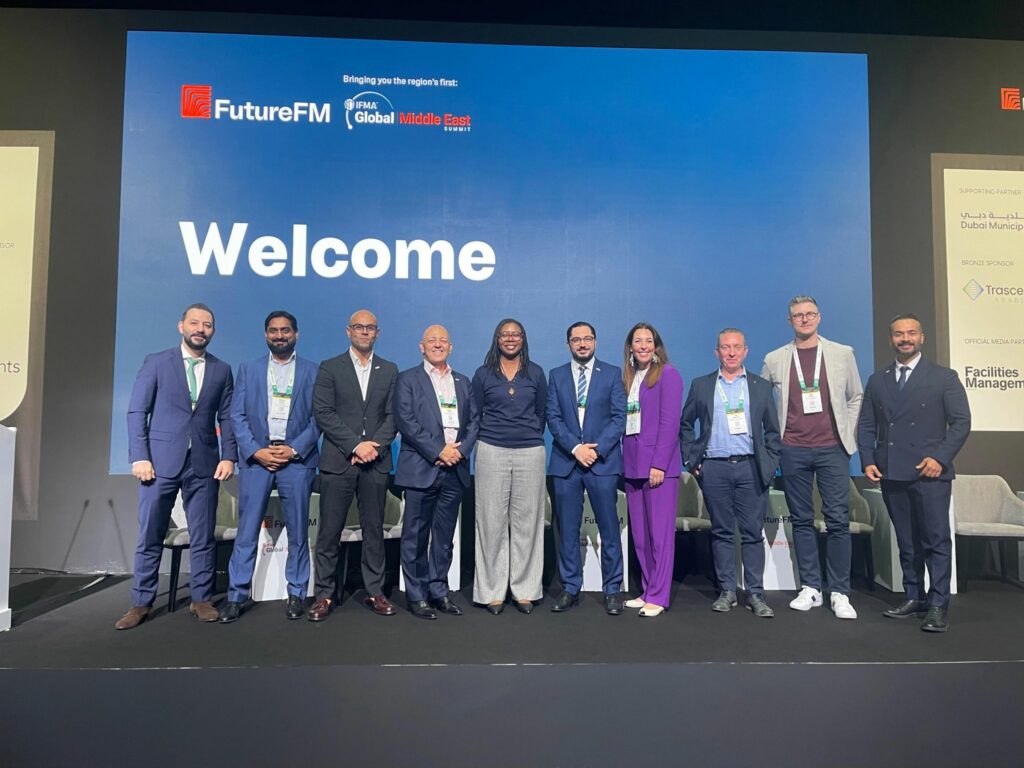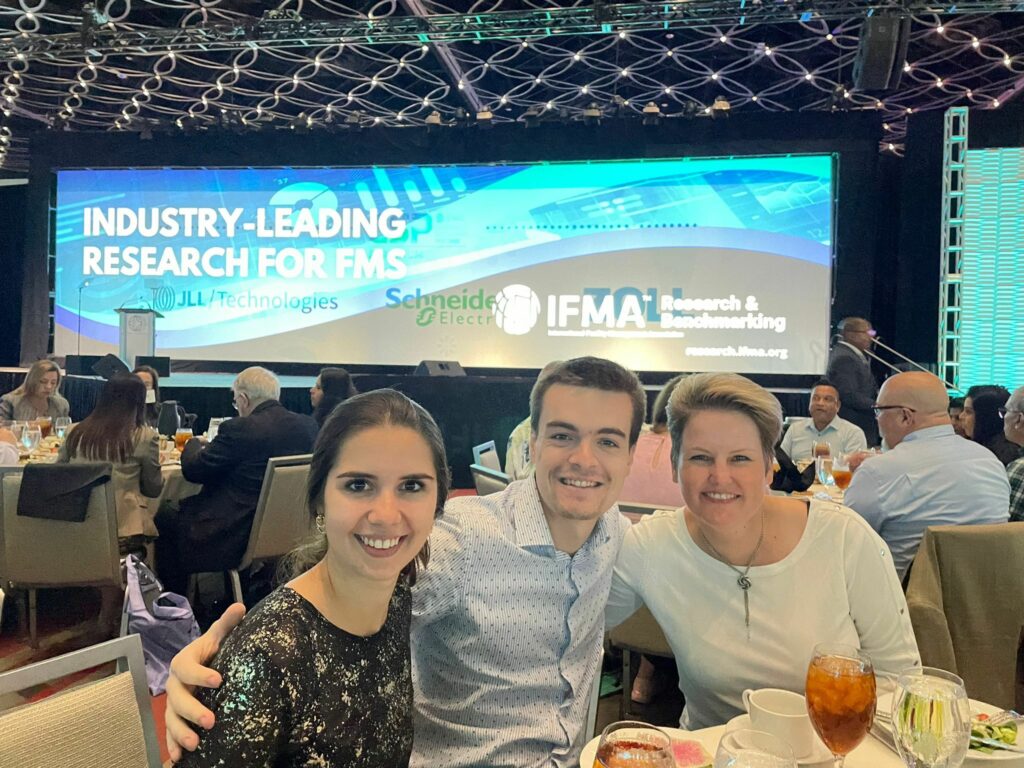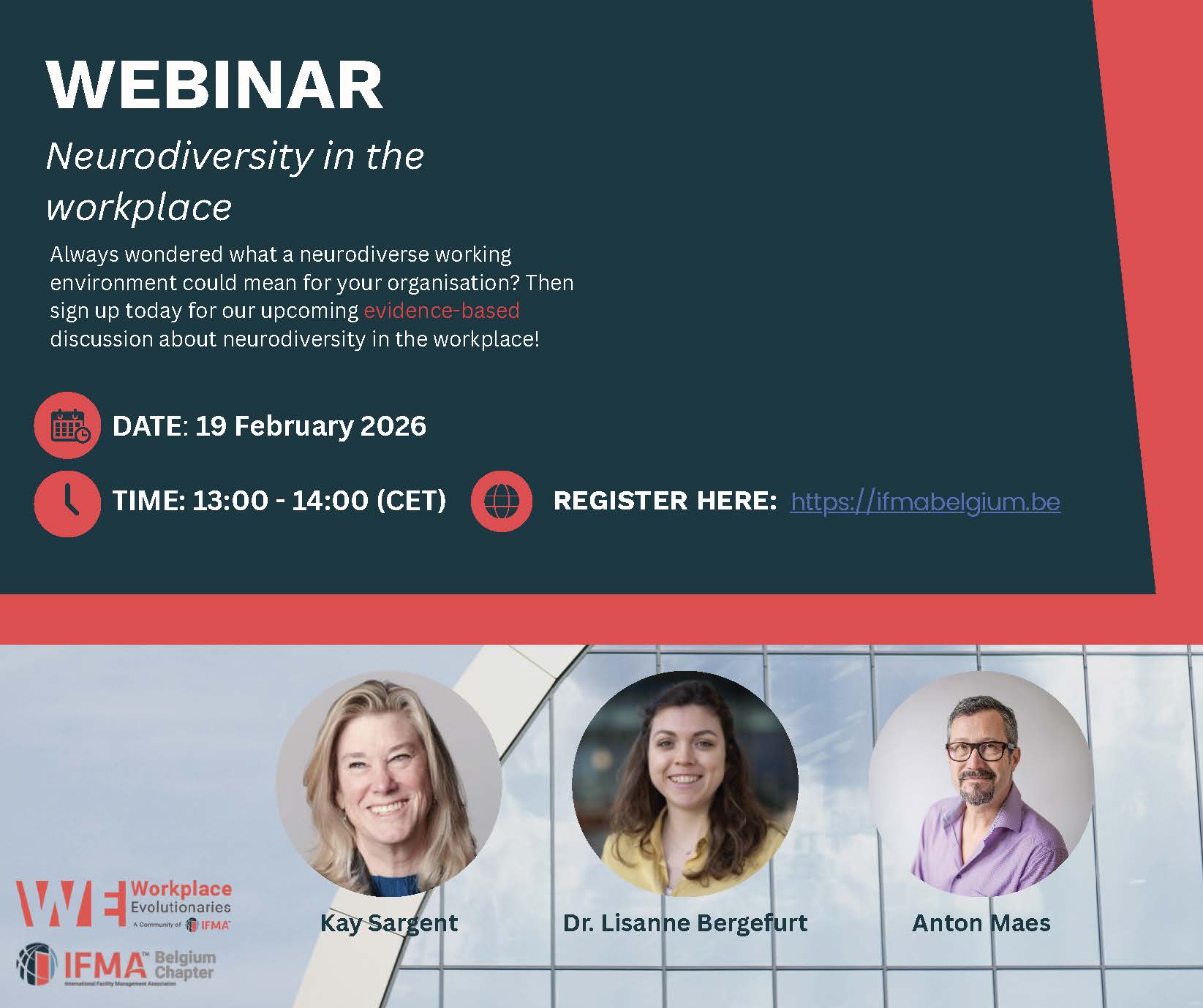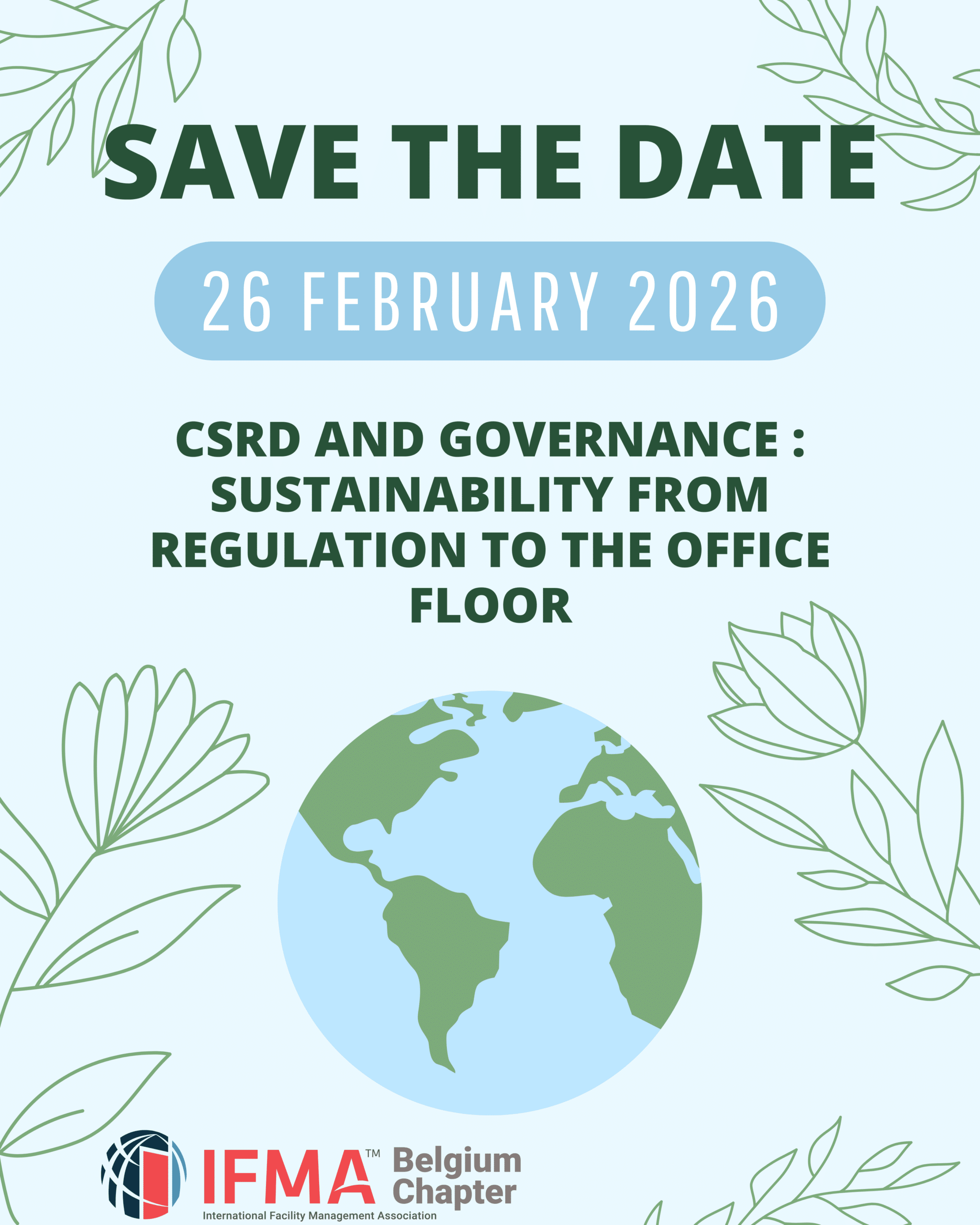The biennial Transdisciplinary workplace research conference, is a breath of fresh air for any self-respecting workplace expert. The 2024 edition in gloomy but fascinating Edinburgh was another inspiring and enriching experience. Of course, the focus of TWR is on science and the organising committee makes it a point of honour to offer a sample of the latest evolutions in global, scientific research on workplace strategy. Consequently, representatives from all continents were present and eager to present their research results to their colleagues in the field.
After a brief welcome by the hosts of Napier University, the conference started with a very strong keynote by Matt Tucker, researcher at the University of Liverpool. As of January 2024, he is also the new research director of IFMA International. In collaboration with IFMA’s Research Advisory Committee – an international panel of multidisciplinary subject matter experts – it is his mission to examine global trends shaping the future of FM, to define IFMA’s research agenda and to disseminate information to assist facility management professionals address and evolve alongside ongoing industry transformations.
Matt shared his insights from interviews with over 40 experts from all continents on the importance of the circular economy and the role the FM manager can play in it. He championed a holistic approach that maximises knowledge transfer between the various disciplines working on the built environment. As we all know, this is a very important route to take if we want to thoroughly address and significantly reduce the footprint of our work environments. By the way, Matt will also share his insights with IFMA Belgium members at the end of this year. Keep an eye on our website.
As is customary at a scientific congress we were bombarded with short presentations by scientists from the four corners of the world. They enthusiastically presented and explained their scientific research on workplace strategy. There were familiar faces off course. Established thinkers in the world of workplace strategy such as Suvi Nenonen, Rianne Appel-Meulenbroek, Susanne Colenberg and so many more. A remarkable number of new, young researchers shared their first research findings. People from the business world were conspicuous by their absence. Which is strange because a scientific congress is the ideal opportunity to brush up on the scientific knowledge of the professional field and to learn about the most recent developments.
An overview of all speakers and corresponding research topics would take us far too far here. However, there were several research findings that we do not want to withhold from the IFMA Belgium network. There was obviously much to learn on the impact of hybrid working and the role the working environment can play. The positive impact of providing informal spaces was demonstrated and, in general, the importance of a diverse workplace concept was substantiated. Apparently, research also showed that there may well be a negative relationship between the desire to come to the office and the obligation to reserve an individual workplace in advance. Off course, these findings will be investigated further.
The impact of activity-based working on satisfaction and productivity has long been an interesting topic. Researchers continue to research the impact of a flexible workplace concept in their studies. The characteristics of the optimal ABW work environment, the various forms of collaboration, whether or not people sit together in neighbourhoods, the need for privacy and the tendency to nest: these are all relevant challenges that we face as FM managers. ABW and the link to the optimisation of the working environment, has also penetrated universities. It was no surprise that a lot of studies zoomed in on this topic.
In short, an interesting and varied congress where one can keep one’s finger on the pulse of the latest scientific research. Although on other aspects, we were left a bit empty handed. What about the relationship between the office environment and the manifacturing environment or lab environment? What impact can change management have on the success of a project? What methods are most effective in adjusting user behaviour? These are topics we might hear all about at TWR 2026 within two years. Looking forward to meeting you there!
